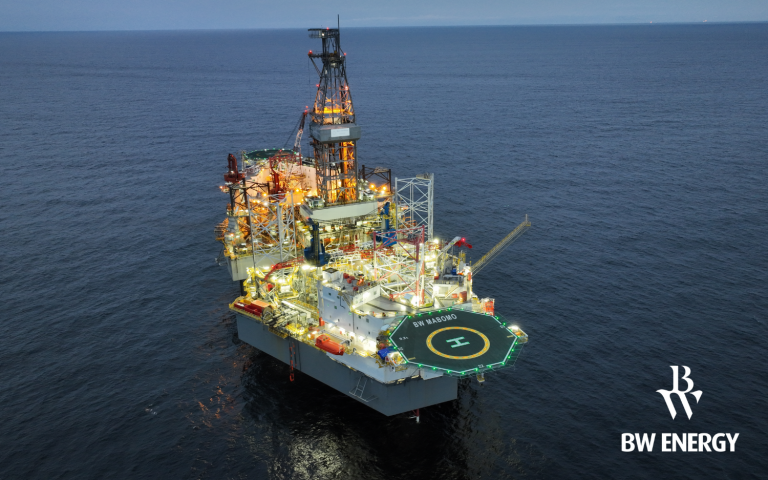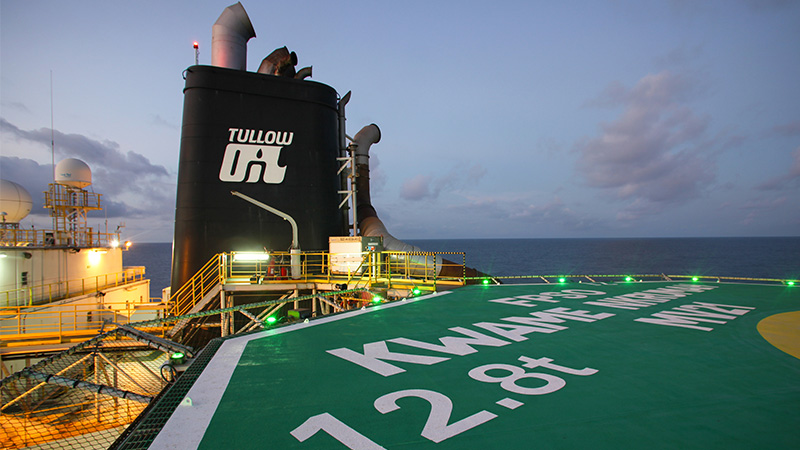The latest 2024 Annual Report of the Public Interest and Accountability Committee (PIAC) has spotlighted how International Oil Companies (IOCs) continue to dominate Ghana’s upstream petroleum sector.
Armed with vast capital reserves and cutting-edge technical expertise, these companies are deemed indispensable for scaling up exploration, production, and ultimately, boosting national petroleum revenue.
While Ghana continues to benefit from oil revenues, the report highlighted ongoing structural challenges, including declining output, a lack of new petroleum agreements, and slow progress in exploration and drilling.
“Sustained upstream activities and operations are indispensable and crucial to upscaling petroleum production and ultimately petroleum revenue for national development.”
PIAC 2024 Annual Report
According to the report, total reconciled production from Ghana’s three active oil fields—Jubilee, TEN, and Sankofa Gye Nyame—stood at 48.24 million barrels in 2024.
This marks a continued trend of flatlining production volumes amid aging infrastructure and limited new exploration success.
“Out of this total, Jubilee Field produced 31.85 million barrels, TEN Field produced 6.78 million barrels with the Sankofa Gye Nyame Field producing 9.60 million barrels.”
PIAC 2024 Annual Report
These figures reveal the continued reliance on IOCs for maintaining production levels despite a challenging environment marked by global oil price fluctuations and challenges in local production capacities.
Limited Investment and Exploration Activity

Notably, no new Petroleum Agreements were signed in 2024. As of December, Ghana has 14 Petroleum Agreements in effect, most of which are in early exploration stages.
Tullow Ghana and Eni remain the primary producers, operating the West Cape Three Points/Deepwater Tano and Offshore Cape Three Points blocks respectively.
“The absence of new Petroleum Agreements and limited drilling activity reflects a slowdown in investor appetite, possibly linked to global energy transition pressures and fiscal uncertainties.”
PIAC 2024 Annual Report
One of the few active drilling operations in 2024 was at Cape Three Points Block 4, where Eni commenced the Eban-2A well drilling using the Borr Natt Jack-up rig in November.
The operation is scheduled for completion in 2025 and aims to appraise the Eban and Akoma discoveries.
Meanwhile, Deepwater Tano/Cape Three Points (DWT/CTP)—operated by Pecan Energies—remains in the development stage.

Following the approval of its field development plan in June 2023, stakeholder engagement and negotiations for a final investment decision are ongoing. “There are ongoing discussions among the partners with the aim of taking a final investment decision,” the report said, adding that no clear timeline has been set.
The long-awaited decommissioning of the Saltpond Field, which began in Q3 2022, was scheduled to conclude by the end of 2024.
However, PIAC reported that the Ghana National Petroleum Corporation (GNPC) is still in the process of procuring an independent third party to verify cost estimates and schedules.
In parallel, GNPC’s 2D seismic data acquisition campaign in the Voltaian Basin progressed into its fourth phase in 2024.
Conducted by BGP-BAY Geophysical Services Limited, the survey aimed to cover 1,040-line kilometers across the Bono East, Ashanti, and Eastern Regions.
Phase 4 of the seismic programme concluded in April 2024, with data processing continuing into 2025. To date, a total of 1,832-line kilometers of 2D seismic data has been acquired.
“The Phase-4 acquisition increased the density of the current 2D seismic lines, reduced the data gaps, reduced geological risk and has improved the geological understanding of the basin.”
PIAC 2024 Annual Report
PIAC Calls for Local Participation

Despite the heavy dominance of IOCs, PIAC noted limited progress in enhancing local content and Ghanaian participation in upstream operations.
The report urged policymakers to accelerate strategies that ensure more inclusive participation and better returns for the national economy.
PIAC also acknowledged the growing impact of energy transition policies on upstream investment, stressing the need for Ghana to strike a balance between extracting fossil fuels and preparing for a low-carbon future.
The 2024 PIAC report painted a cautious picture of Ghana’s upstream sector—marked by IOC dominance, stagnant production, and subdued exploration activity.
While infrastructure projects like the Voltaian seismic surveys show promise, the broader outlook hinges on fresh investment and policy clarity.
READ ALSO: Standard Chartered Launches 5th Edition of Women in Tech Accelerator Programme























